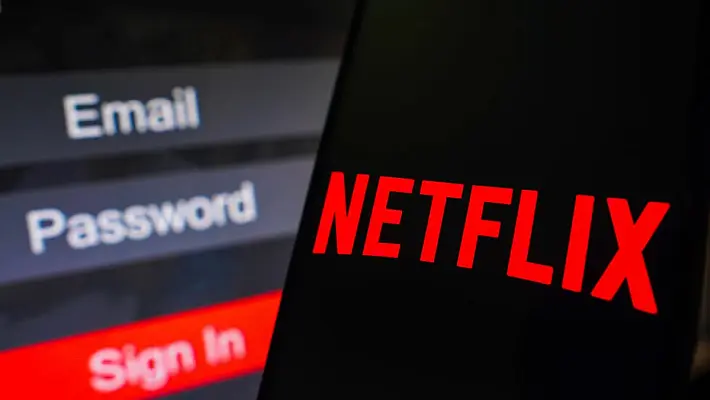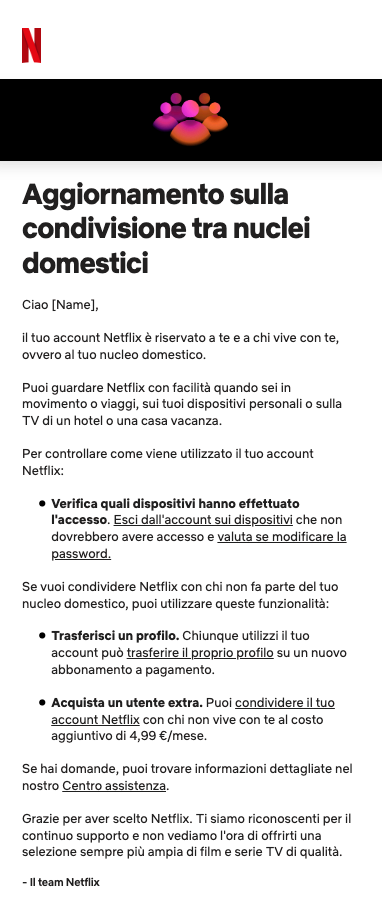Netflix starts crackdown on password sharing
Netflix is stepping up efforts to limit password sharing among subscribers. After an initially delayed rollout, this measure is now being rolled out to subscribers in the US and other global markets, including Italy.

Initially scheduled for the first quarter of this year, “paid sharing” has been postponed to the summer following cancellations in other markets where it had already been introduced.

The new rules will require subscribers to either kick people not in their primary household from their Netflix account or pay €4.99 a month for an additional subscription.
Netflix plans to roll out similar changes in a number of global markets in the coming months. The company is providing tools to help with this transition, including the ability for subscribers to view and manage the devices connected to their account and to reset their password.
Those who currently share an account will be able to transition to an individual account via the “Transfer Profile” option, which will allow them to transfer their account information, such as viewing history and favorites list.
During his April earnings call, Netflix co-CEO Greg Peters told investors that he has observed an initial subscription cancellation reaction following the changes in password sharing.
However, they have also seen an increase in subscription numbers and revenue as people sign up for their own Netflix accounts and existing subscribers buy additional subscriptions to share with other people.
Peters stressed that the consistent results seen in different countries were good validation of the effectiveness of such measures.
The announcement comes at a significant time as HBO Max is revamping as Max , a new service that brings together content from HBO and Discovery+ into a single platform, offering more programming.
Next month, on June 27, Paramount+ will also add Showtime to its offering. Meanwhile, Disney has announced plans to merge Disney+ and Hulu into one app.
While some of these changes are related to price increases, they also offer a greater variety of content to subscribers. Meanwhile, Netflix is asking users to pay more for the same catalog of shows.
Source: techcrunch.com
